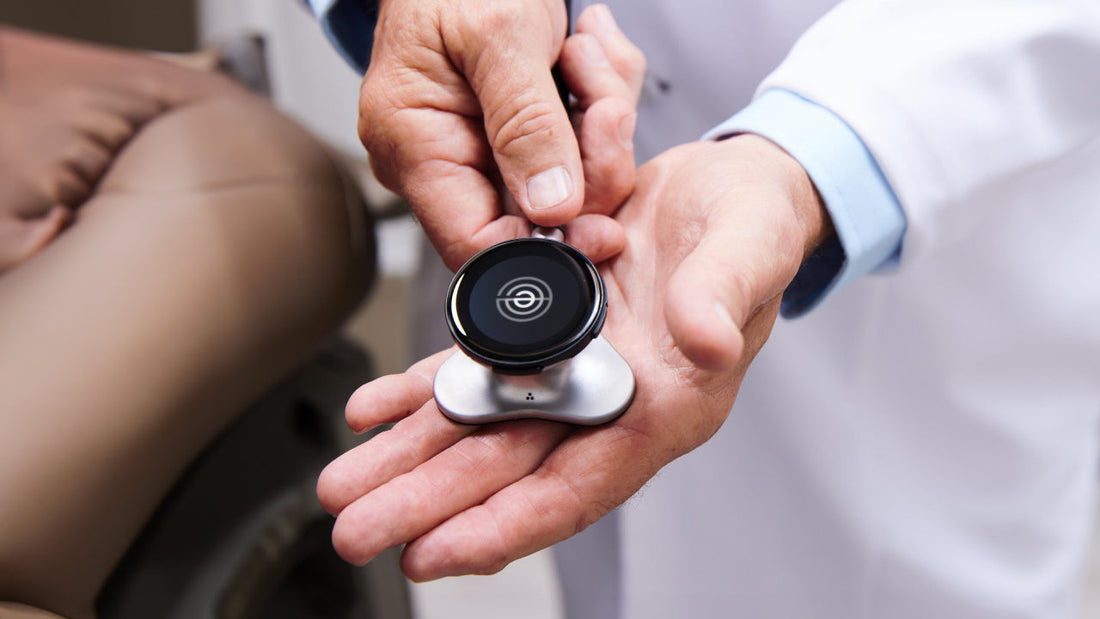Digital Tools in Medical Education: Empowering Tomorrow’s Clinicians

Digital tools in medical education
The landscape of medical education is evolving rapidly, and digital tools are at the forefront of this exciting transformation. Today’s medical students aren't just learning from textbooks and cadavers; they have a world of innovative technologies at their fingertips. From digital stethoscopes to AI-driven diagnostic aids, integrating technology into healthcare education is gearing up future doctors to provide even better patient care in our digital age.
Embracing technology in medical training
As medicine becomes more intertwined with technology, it's essential to incorporate digital tools into medical training. These tools not only enhance learning but also create real-world scenarios that students will encounter in their careers.
One of the medical profession's most iconic symbols, the stethoscope, has undergone a digital makeover. Eko's digital stethoscope technology amplifies heart and lung sounds, making it easier for students to catch and understand the subtleties of heart murmurs and other critical sounds.
Artificial intelligence (AI) is another game-changer. AI-driven programs can assist students in diagnosing conditions by analyzing symptoms and medical histories. Early exposure to AI is crucial as it is set to become a significant part of clinical practice.
The benefits of digital tools
Digital tools in medical education offer numerous benefits, from enhanced learning experiences to better patient outcomes. Let's explore some of these exciting advantages.
- Enhanced diagnostic skills: Digital tools like heart murmur detection software can help students develop their diagnostic skills. By providing immediate feedback, students can learn and refine their techniques in real time — something traditional methods can't offer.
- Access and portability: Digital tools are often more accessible and portable than their analog counterparts. Digital stethoscopes can record sounds and share them with peers or mentors for further discussion, fostering a collaborative learning environment.
- Standardized education: Digital tools can help standardize medical education across different institutions. With the same software and tools, all students can access the same high-quality resources, regardless of their location.
Challenges and considerations
Despite the clear benefits, adopting digital tools in medical education comes with challenges. Medical educators must continuously update their knowledge and resources to keep up with the rapid pace of technological advancements. Institutions also need to provide adequate training and support for both students and faculty to ensure that digital tools are used effectively. It's essential to find a balance between employing digital tools and preserving the tried-and-true traditional methods of medical education.
Preparing for the future
Using digital tools in medical education isn't just about keeping up with technology; it’s about preparing students for the future of healthcare. As patients become more connected and health systems become more tech-driven, doctors will need to be proficient with digital tools from day one.
Medical students must become digitally literate, meaning they must understand how to use technology effectively and ethically in a clinical setting. The medical field is constantly evolving, and so must its practitioners. New technology can facilitate continuous learning and adaptability, which are essential traits for any healthcare professional.
Embracing a digital tomorrow
Digital tools are revolutionizing medical education by enhancing learning experiences, improving diagnostic skills, and preparing students for a technologically advanced healthcare environment. As medical schools continue to integrate these tools into their curricula, future healthcare professionals will be better equipped to provide high-quality patient care in the digital age.
To fully realize the benefits of these technologies, educators and institutions must address implementation challenges and ensure that these digital advancements complement traditional teaching methods. The future of medicine is digital, and by embracing these tools today, medical students are taking a significant step toward becoming the knowledgeable, skilled, and tech-savvy doctors of tomorrow.
By integrating advanced digital tools and maintaining a balance with traditional methods, the education system can ensure that the next generation of doctors is well-prepared to meet the demands of modern healthcare.
MKT-0003165
